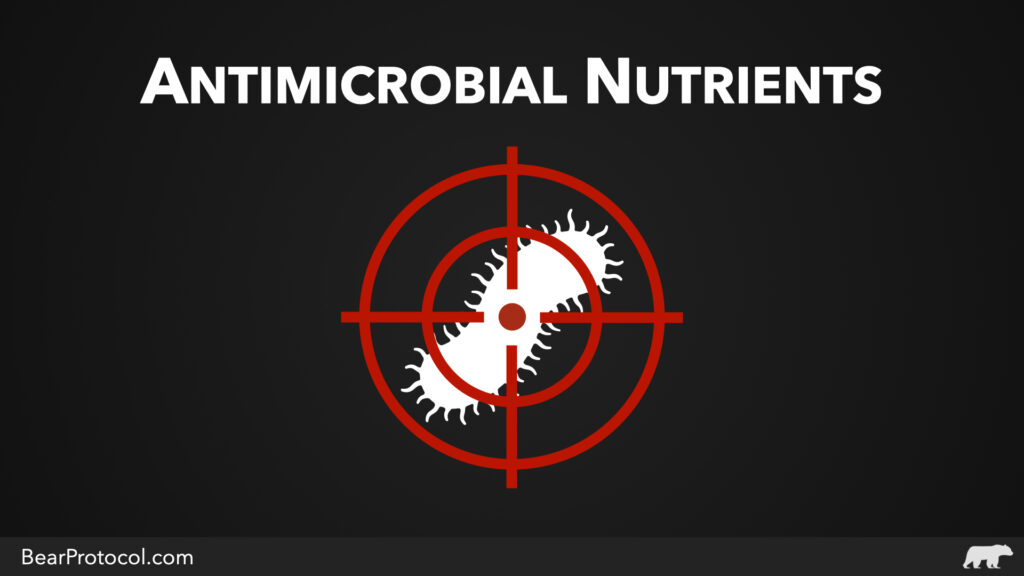
Stubborn intestinal overgrowths have been on a sharp rise in the modern era. Unfortunately, some of the most stubborn microbes can build biofilms and a resistance to almost any treatment. One way to help inhibit or even help reverse these microbes could be to consume the nutrients that have antimicrobial properties or the probiotics that synthesize byproducts that have antimicrobial properties.
The following is a list of vitamins, minerals, amino acids, fatty acids, and probiotics that have been shown to have antimicrobial properties against bacteria, yeasts, or fungi.
Antifungal Nutrients
Vitamins
- Vitamin B6 / Pyridoxine-5-Phosphate: Should only be used with caution and under the supervision of a medical practitioner as vitamin b6 supplementation can result in nerve damage.
- Vitamin C: Excessive vitamin C can contribute to oxalate production and calcium oxalate kidney stones.
Minerals
- Copper
- Zinc
Fatty Acids
- Caprylic Acid
- Lauric Acids
Probiotics
- L. Casei
- L. Acidophilus
Antibiotic Nutrients
Vitamins
- Vitamin B3 (Niacin): High concentrations of niacin can exhibit antibacterial properties.
- Vitamin C (Ascorbic Acid): High levels of vitamin C can have antibacterial effects.
Minerals
- Silver: Silver ions have strong antibacterial properties and are used in various forms for their bactericidal effects.
Amino Acids
- L-Arginine: High arginine levels can impede certain strains of bacteria.
Fatty Acids
- Palmitoleic Acid: This monounsaturated fatty acid has been reported to have antibacterial effects.
- Myristic Acid: Found in some plant oils, myristic acid also exhibits antibacterial properties.
